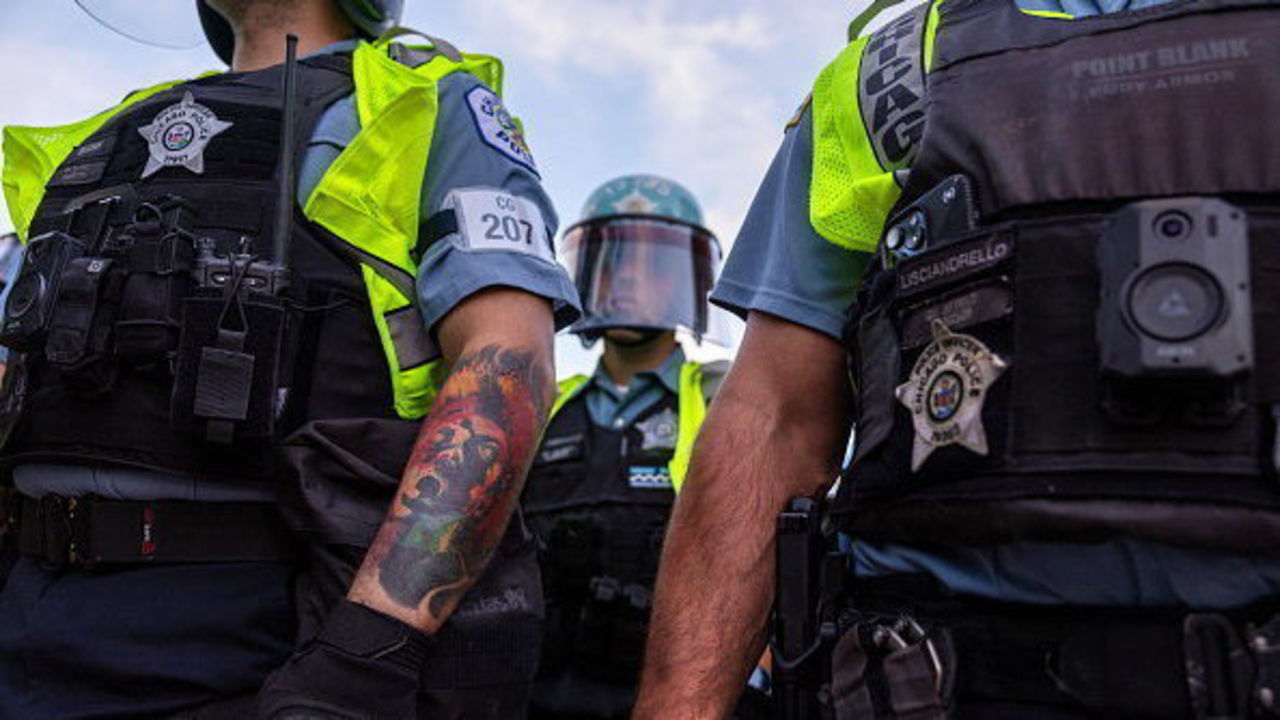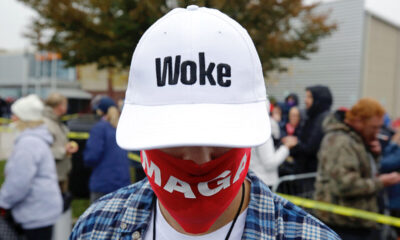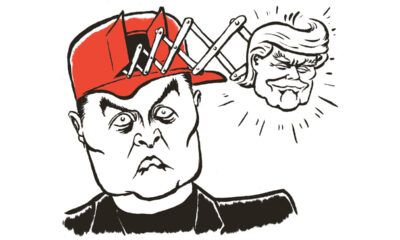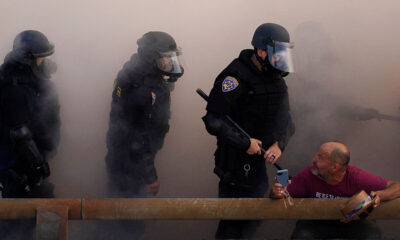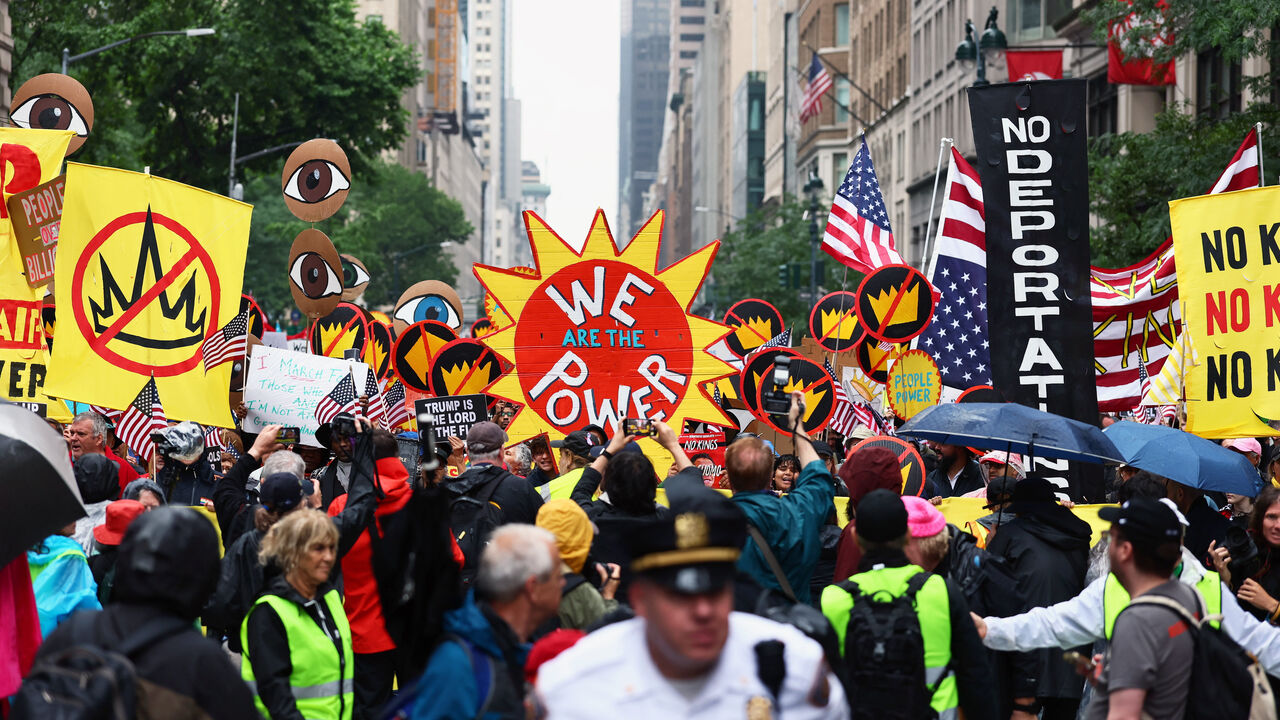THERE ARE countries in the world where machete-wielding teenagers intimidating voters are a routine part of elections. America is not normally among them. Yet on October 29th an 18-year-old man in Florida was arrested for doing exactly that. Caleb James Williams was, according to local police, part of a group of eight young men hanging out in the parking lot of an early-vote polling station in suburban Jacksonville, waving Donald Trump flags and chanting slogans. Mr Williams allegedly “brandished a machete in an aggressive, threatening posture over his head” at two women who were supporting Kamala Harris.
In late October two ballot boxes, one in Washington state and one in Oregon, were set alight. In Arizona, on October 24th, a 60-year-old man was arrested in connection with three incidents where a Democratic National Committee office was shot at, first with a BB gun, and then with real bullets. In Michigan, on November 2nd, a 55-year-old man was charged after allegedly accelerating his car at Harris campaign canvassers, while calling for them to be exterminated. And in July, one candidate, Donald Trump, was almost assassinated.
Many Americans fear it could get worse. Three-quarters of Americans say that they are worried about post-election violence, according to the AP/NORC poll. Some businesses in Washington, DC, have boarded up their windows, apparently for fear of riots. A few larger businesses are quietly preparing for potential disruption by cancelling meetings and suggesting employees work from home. Readying for potential unrest, some media organisations have even redeployed correspondents from warzones. A few media organisations are warning darkly of “civil war”. But how bad could it really get?
“I am not a panic peddler,” says Sheriff Tom Dart of Cook County, Illinois. “I am just sitting on data that is indisputable…saying that we’ve never had more people saying political violence is OK.” Mr Dart is among the most prominent of 200 law-enforcement officers who have been briefed by Robert Pape, an academic at the University of Chicago who studies political violence. Mr Pape has been surveying voters, both remotely and in person at rallies. Based on this evidence, he is frank: “We are going forward into a season of political violence.”
Underpinning this is data showing that significant minorities—a fifth of Americans—say they support the use of violence to either restore Donald Trump to the presidency or else to prevent him from taking it. That finding, Mr Pape argues, is roughly analogous to discovering there is a lot of dry wood in a forest. It does not necessarily mean that an enormous wildfire will break out. Nor does it tell you much about what sort of spark could set it off. But it means that you should be prepared.
What would violence look like if it happened? Much depends on the results. If Ms Harris appears to be winning in a close count, one possibility is protests at places where counts are being held (as happened in 2020), fuelled by conspiracy theories about fraud. Even if she won clearly, currently sporadic violent incidents against Democrats by amped-up or paranoid individuals could escalate. By contrast, if Mr Trump wins, the fear would be widespread protests in big cities, some of which could turn into violent rioting. Mr Pape stresses that his data suggest people on both sides of the political divide are supportive of violence.
The risk, however, is not evenly balanced. Another survey by the Public Religion Research Institute, a think-tank, suggests Republicans are over three times as likely as Democrats to believe that “true American patriots may have to resort to violence to save the country”. And incitement can turn support for violence into action. In the final weeks of the campaign, Mr Trump has come close to that. At one of his final rallies in Pennsylvania on November 3rd he appeared to make a joke about how he “wouldn’t mind” if somebody shot at the “fake news” journalists covering him, and suggested that “demonic” Democrats “are fighting so hard to steal this damn thing”.
One concern is that viral online posts claiming to offer proof of electoral fraud or irregularities will inspire people to take to the streets. A recent illustration of just how quickly “rage bait” can spin out of control came from the (false) claim that Haitians were eating dogs in Springfield, Ohio. That was then amplified by Mr Trump and his running-mate, J.D. Vance. It led to over 30 bomb threats against schools and government buildings. Already hundreds of posts have claimed to show evidence of election fraud, and many more are certain to follow on and after election day. False claims are also fanned by foreign adversaries: a viral video purporting to show Haitian immigrants illegally voting in Georgia turned out to be Russian election interference, America’s intelligence agencies said last week.
Yet there are reasons to be optimistic for a smoother ride than in 2020. Local officials are better prepared. In Michigan, poll workers have been given special phone numbers to contact law enforcement if they are threatened. In Philadelphia’s, ballot-counting has been moved from the city centre location warehouse , where in 2020 Mr Trump’s supporters banged on the windows demanding to “stop the count” to a suburban warehouse, is now surrounded by barbed wire. “Do we think it’s possible there’s going to be protests at election warehouses? We’ve already seen that, so, yeah, we’re planning for that. Do we think that folks are going to get threatened? Yeah, we’re planning for that,” says Adrian Fontes, Arizona’s Democratic secretary of state. According to the Brennan Centre for Justice, a think-tank, 92% of local election officials across America have taken steps to improve election security and staff safety.
Will it be enough? Predictions of imminent civil war are clearly overblown. Even widespread violence seems unlikely. But irregularities and a few bad incidents are inevitable (and happen at every election). “The notion that all police departments are going to be up to speed on election law is wildly naive,” worries Mr Dart, the sheriff in Illinois. After all, America has almost 18,000 police departments. Small forces are not all trained in active-shooter response, best crowd-control practices or in riot equipment and weapons, says Brian Higgins, a former cop and now a crowd-control expert at John Jay College of Criminal Justice.
Overall, police seem prepared. And election officials have put measures in place, including live feeds of drop boxes, in an attempt to build trust in the process. Sending a signal that political violence will be severely punished would help. Unfortunately Mr Trump is conveying the opposite message to his supporters—by promising to pardon January 6th rioters if re-elected. As long as violence is not roundly condemned, it is impossible to rule out. ■

 Economics1 week ago
Economics1 week ago
 Economics1 week ago
Economics1 week ago
 Economics1 week ago
Economics1 week ago
 Finance1 week ago
Finance1 week ago
 Blog Post1 week ago
Blog Post1 week ago
 Economics1 week ago
Economics1 week ago
 Personal Finance1 week ago
Personal Finance1 week ago
 Economics1 week ago
Economics1 week ago
